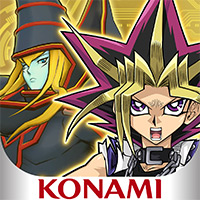As one of the gigantic Trading Card Game (TCG) franchises in the world, Yu-Gi-Oh! enjoyed its prime in the early 2000s. It accumulated a huge fan base with an original comic by Kazuki Takahashi, along with animes and TCGs based on his work. Sadly, its heyday has come to a halt in the wake of smartphones, as the options provided by the new digital world were so much more compact, fast, and stimulating. In addition, inherent traits of the TCG genre have rendered the game more and more niche. Thus, the Yu-Gi-Oh! TCG slowly lost popularity, leaving only the most fervent fans in the game — and with the decline in the core TCG, the franchise also met its fall.
In an attempt to reclaim its user base, the franchise reconstructed the game over the years, adopting the game on different platforms or even redesigning the game to adopt a faster, simpler mode. Recently, Yu-Gi-Oh! Master Duel met incredible success by installing the traditional TCG into a digital platform. Picking up on such momentum, Konami released Yu-Gi-Oh! Cross Duel, a mobile game distinguished from previous games.

Yu-Gi-Oh! Cross Duel is a mobile game that reformatted the TCG, allowing four players to battle using rules unseen before in the franchise. The main idea remains intact: summon monsters and lower the opponents’ life points. New concepts called “lanes” are added to this basic idea, compartmentalizing battle phases and separating players into battlegrounds of their choice. This new rule is easy to pick up, lowering the entry barrier for users returning to the franchise while evoking nostalgia through characters from their childhood. At the same time, the structure of the game is novel and intricate enough to make room for different forms of strategies and give Cross Duel a distinctive presence within the franchise.
Monsters from both the TCG and the animes are available to users with the most iconic characters, highlighted as “Ace Monsters”, bringing in the excitement old fans longed for. Cross Duel also implemented animations for each monster — Ace Monsters are given emphatic animations, a feature not seen in games for a long time. While the game itself lacks a central storyline for users to immerse themselves into, the emotional enticement is certainly present. Additionally, players can customize their monsters by replacing their original effects with skill trees which they can select themselves. In comparison to other games, Cross Duel seems to be homologous to Clash Royale: a quick, intense mobile game with room for strategic creativity.
Despite these strengths, there are some fallbacks that become evident with a few playthroughs. Contrary to the intent of the producers, the system is structured to elongate the time required per round. Each in-game phase requires the permission of all players to proceed. This is a traditional characteristic of the Yu-Gi-Oh! franchise that cannot be fixed. With four players in the game, users have to wait for others to make their decisions, which inevitably slows down the pace of the game. Even the nostalgic animations begin to feel redundant and sluggish after multiple slow playthroughs.
The intricacies of the four-player system ironically disturb the game and destroy the intended balance of the round. Strategy revolves around a precise balance of power between the four players. A player has to decide which of the three opponents to target, manage power on the board with available choices from the cards in hand and predict the actions of other players. However, this balance is quick to break when the skills of players are not equal. At the start of the game, players are recommended to gather in the middle of the board where all four lanes collide — the only place where four players can engage in battle simultaneously. Four players are engaged in a mini tournament where they fight the player directly opposite to them, with the winner of each battle fighting each other to decide the final winner of the battle. The first winner of that lane is granted a powerful advantage during the game. Furthermore, since the winner is decided by how many life points they have at the end, if a player leaves the game, a serious advantage could be given to the player directly opposite the missing player.
Skill imbalance between the players is not the only problem in matchmaking. Cross Duel currently matches one AI player per game depending on the queue of the game and this may also imbalance the game.
In essence, the game is “easy to learn, hard to master”. It is a fun spinoff of a game long enjoyed by fans all over the world. However, Konami needs to work more on the management of the game to reduce its systemic flaws. While I do not believe that Cross Duel can match the success of Yu-Gi-Oh! Master Duel, it possesses the potential to open a new paradigm for the Yu-Gi-Oh! franchise in the future.

